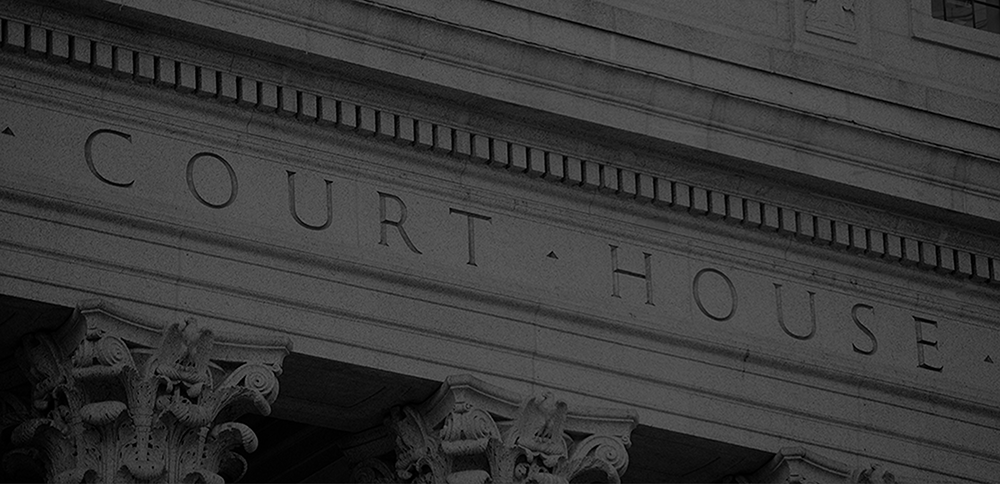
Dedicated to The Vigorous
Pursuit of Justice
The Tormey Law Firm is a team of highly experienced attorneys who focus on domestic violence and restraining order law in New Jersey. They have successfully handled thousands of restraining order trials and domestic violence criminal cases in courts across the state.
Read MoreCLIENTReviews

INDUSTRY Recognitions

National Academy of
Criminal Defense Attorneys

Avvo Five
Star Reviews

Avvo Clients’
Choice Award 2025

A+ Rating from
the Better Business
Bureau

American
Jurist
Top 10
Attorneys


The Tormey Law Firm is dedicated to the vigorous pursuit of justice. Our battle-tested attorneys advocate for victims of domestic violence and defend the rights of the accused against false allegations.
defend your rights >FOCUSED ON New Jersey Restraining Orders
Civil Restraints in New Jersey Domestic Violence Cases
Penalties for Domestic Violence in NJ
How to Vacate a Restraining Order in NJ
ABOUT Restraining Orders
MENTIONED In the Press








RESTRAINING ORDERS Case Studies
Restraining Order Attorneys in New Jersey
Need help fighting for or against a restraining order in NJ? We can help
If you or a loved one are involved in a restraining order hearing and need legal assistance, you’ve come to the right place. The NJ restraining order lawyers at the Tormey Law Firm LLC have literally resolved hundreds of restraining order cases in every county in New Jersey. This experience and expertise allows our lawyers to understand the complicated legal process concerning restraining orders and achieve the best possible outcomes for our clients.
If you are a Plaintiff in a restraining order hearing, we can help you.
If you are a Defendant in a restraining order hearing, we can help you.

How to Choose the Best Lawyer to Handle Your Restraining Order Case
Some of the most important information to consider when choosing an attorney to handle your restraining order case includes the following:
- Experience – Restraining orders and domestic violence hearings are a specialized area of law. You want someone who has literally handled hundreds and thousands of domestic violence and restraining order matters in their career.
- Local Presence – It is best to choose an attorney who is local to the court you are dealing with. They will know the Judges and the court staff and will be able to navigate through the legal process for you in a court they are very familiar with.
- Confidence – Just like any other person, a lawyer needs to be confident in themselves and in their knowledge and ability to give you the best possible chance to win your case in court.
- Pricing – Some lawyers charge by the hour and some charge a flat rate to handle the entire case. You need to understand what you could be charged per hour and what the total potential cost could be if the case goes to trial.
- Client Reviews and Success Stories – See what kind of cases the attorney has handled similar to yours and what prior clients have to say about their experiences.
Here is some basic information regarding restraining orders that can assist you in understanding the restraining order process in New Jersey. For additional information, please contact one of our experienced restraining order attorneys anytime for immediate assistance at (908)-336-5008. The initial consultation is always provided free of charge.
How the Process Begins – A Temporary Restraining Order is Filed and Served
A temporary restraining order (TRO) can be issued by a Superior Court Judge in NJ when he or she believes a predicate act of domestic violence has occurred against a protected party. If the police are contacted after court hours (4 pm), then a Municipal Court Judge will typically be contacted regarding the issuance of the temporary restraining order. The final hearing is typically scheduled within 10 days of the issuance of the TRO.
A protected party under the domestic violence act is someone who has previously dated the defendant, lived together, or have a child together. Otherwise, the court will not have jurisdiction under the Domestic Violence Act to enter a temporary restraining order (TRO). However, the plaintiff may be able to file for a temporary protective order (TPO) if there has been cyber-harassment, stalking, or a sexual assault. These orders can be filed against a stranger, co-worker, neighbor, or anyone else – there does not need to be any prior relationship between the parties. In addition, a victim can always file criminal charges (either report to police to file charges or file charges on their own) for things like assault, harassment, terroristic threats, stalking, etc.
A restraining order is a civil proceeding in New Jersey, it is not criminal. The case will be handled in the Family Division of the Superior Court.
The Final Restraining Order Trial – Evidence and Proving or Defending Your Case
At a final restraining order hearing, the Plaintiff goes first and has the burden of proof. He or she will typically testify and admit any evidence they have to prove that there was an act of domestic violence, there is a prior history of domestic violence, and the restraining order is required to protect them from future acts of violence. Some evidence that is typically utilized in these hearings includes but is not limited to:
- Witnesses (sometimes police officers)
- Emails, voicemails, text messages, social media posts or messages
- Police reports
- Hospital records
- Photos of injuries or damage to property
- Videos
Both parties can be represented by an attorney or represent themselves. Because it is a civil case and not criminal, there are no public defenders available to handle these cases. If a party represents themselves, he or she will be held to the same rules of evidence as an attorney, which is why it is very important to have a lawyer handle this case for you if you can afford it.
Once the Plaintiff testifies and admits their evidence, the defendant (or their counsel) will have an opportunity to cross examine them. Once the Plaintiff is finished with their case, it is the Defendant’s turn to testify (if they choose) and produce their own evidence (if any). Remember, the Plaintiff has the burden of proof and the defendant does not have to prove anything.
NOTE: Although there are no “free lawyers” for these cases or public defenders (because they are not criminal cases), there are some groups who will represent victims for free and appoint a lawyer for them. For example, the Victims of Crime Compensation Office (VCCO) approves clients as victims in a TRO matter and then counsel can be obtained through them (for Plaintiffs only). The Tormey Law Firm does work with the VCCO office and represents clients for them who are unable to pay.

The Judge’s Decision and Its Consequences
After the hearing is over and both parties have rested, the Judge will issue their ruling. There are only 2 possibilities:
- The temporary restraining order is dismissed. The Plaintiff failed to prove that there was a predicate act of domestic violence, a prior history of domestic violence, or that they are in reasonable fear for their safety beyond a preponderance of the evidence. Once the restraining order is dismissed, all of the prior restraints on the defendant are vacated. If the parties live together, the defendant can return home. However, it is important to keep in mind that if the plaintiff alleged a new act of domestic violence, then a new restraining order can be issued. If weapons were seized based on the TRO, the defendant can contact the county prosecutor’s office about their return. They may try to forfeit the weapons even if the TRO was dismissed.
- The final restraining order is granted. The Judge found significant credible evidence and all of the elements were proven by a preponderance of the evidence. The Defendant will be fingerprinted and placed into a NJ database for domestic violence offenders. He or she can not own or possess firearms. The defendant will be prohibited from any contact with the plaintiff, prohibited from their residence and place of employment, and can be restricted from contacting any other protected parties (such as the plaintiff’s parents, siblings, even sometimes their children). This restraining order could effect employment opportunities, professional licenses, traveling in and out of the United States, and immigration status for the defendant. The Judge may order counseling the defendant must complete and the Court can also order that the defendant pay the Plaintiff’s attorneys fees (if they had one).
If a temporary restraining order (TRO) or final restraining order (FRO) is violated then a defendant will be arrested and charged criminally for contempt. On a second violation, the defendant must serve mandatory time in the County jail (30 days).
Restraining orders in New Jersey are permanent and never expire. However, you may be eligible to file an appeal if a final restraining order was issued against you. In addition, after some time passes, you can file a motion to vacate the final restraining order based on a change in circumstances such that the restraining order is no longer necessary.
How Else a Restraining Order can Affect Your Life
However, if a Final Restraining Order (FRO) is placed on you, this can have serious collateral consequences including the following:
- You will be fingerprinted and placed in a database for domestic violence offenders.
- You can not own firearms and must forfeit any firearms you have previously owned.
- You may be stopped at airports, customs, etc. and law enforcement will check to ensure that you are not traveling with or near the alleged victim.
- Your child custody and visitation (if any) can be affected.
- You can be prevented from attending places where the alleged victim attends such as schools, churches, relatives homes, etc.
- If you are not a US citizen, this can have immigration consequences for you.
- If you hold any professional licenses, they may be effected.
This is important information for both a plaintiff and a defendant to know. Sometimes plaintiffs decide that they do not want a Final Restraining Order (FRO) because of all the serious consequences that are placed on a defendant if issued. Conversely, and obviously, if a FRO is necessary to protect a plaintiff’s safety and well being then he or she should move forward and pursue a FRO in court. Further, in some cases an agreement can be reached called “civil restraints” which resolves the case outside of court without the need for a trial or hearing.
Restraining orders are handled in the Family Division of the Superior Court of the county in which the parties reside. In order for the court to have jurisdiction, the parties must have been in a dating relationship, had children together, or resided together at some point in their lives. The standard of proof, because it is a civil matter, is “by a preponderance of evidence” which is basically “more likely than not”. This is a lower standard than a criminal case which is “beyond a reasonable doubt”.
Contact our New Jersey Office Near You for a Free Consultation – Hackensack, Morristown, Newark offices
The NJ restraining order attorneys at the Tormey Law Firm LLC have been representing clients at restraining order hearings for almost 20 years. For additional information regarding restraining orders in New Jersey, please continue to explore this website and watch Mr. Tormey’s videos. You also can speak to him directly for a free consultation anytime at (908)-336-5008. We look forward to hearing from you



